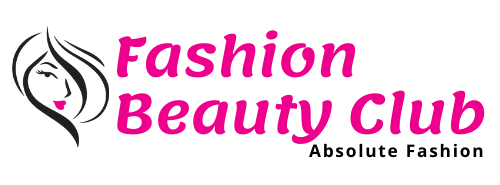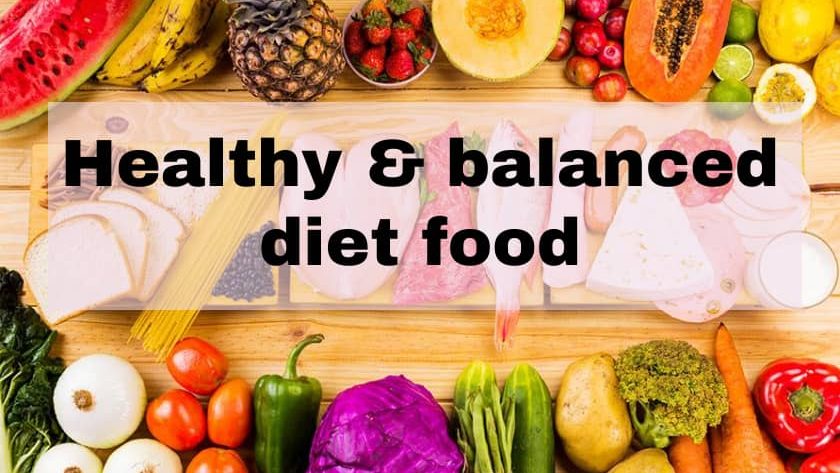A balanced diet can be defined as a type of diet that fulfills an individual’s nutritional needs. It gives your body the right kinds of nutrients which enables you to stay healthy. In other words, a balanced diet helps you to consume healthy food items so that you do not gain much weight.
Why is a Healthy Diet Important?
A healthy diet is important for the following reasons:
- A healthy diet supplies nutrients to your body so that it can work effectively, strengthens your immune system, and prevents your body from gaining weight.
- A healthy and balanced diet increases energy as well as improves your bodily functions.
- A healthy diet helps in preventing certain diseases like diabetes, stroke, cancer, etc. It also helps in the treatment of diseases like diabetes and high blood pressure.
- Children who follow a healthy diet grow rapidly and are less prone to diseases or infections.
- A healthy and balanced diet helps you to fight stress and enables you to manage ailments.
How do we manage a Balanced Diet?
- Opt for red, orange, and dark-green vegetables for your meals. Keep fruits as part of a side dish or dessert.
- Drink lots of water. Avoid soda, energy drinks, and sports drinks. In case you want to add flavor to your water, add a slice of lemon, or fresh herbs like mint or basil.
- Keep meal preparation easier and eat more raw foods like salads, fruits, veggies, etc.
- While eating out, opt for baked or grilled food items instead of fried items.
- Eat smaller amounts of seafood like salmon, tuna, and trout, shellfish, and more.
- Do not skip meals as it can lower your metabolic rate. 3 major meals and 2 snacks between meals is a sign of normal eating. Also, do not skip breakfast.
- You must keep aside some healthy snacks as this will prevent you from eating unhealthy snacks when you’re hungry.
- Remove all visible fats from the food items before you cook it.
- Decrease the amount of salt in your food items while cooking and use more herbs and spices.
- Cut back on caffeine, alcohol, and refined sugar.
Calories in a Balanced Diet Food:
A calorie can be defined as a unit of energy that is important to maintain the vital functions of the body. If you eat too many calories for a long period, you can become overweight and obese. This will increase the chances of heart diseases and cancer.
On the contrary, if you eat too few calories, then you ten to become underweight and hence it eventually leads to muscle atrophy, weakened immunity, and organ failure. An average person must consume 2,000 calories per day so that they can maintain their weight.
However, the number of calories you should consume will depend on your age, sex, and physical activity level. Males need more calories than females, and people who engage in more physical activities require more calories than people who don’t.
Foods that provide calories but not much nutrition can be defined as empty calories. Foods that provide empty calories are processed meats, cakes, cookies, premade pizza, sodas, etc. If you want to remain healthy, decrease your consumption of empty calories and try to increase your calorie intake from foods that are rich in nutrients.
Healthy Foods and Vegetables in your Diet:
A healthy and balanced diet includes eating a variety of foods that includes fruits, vegetables, grains, protein foods, milk, and dairy products.
Consume local fruits that are fresher and are in season. It gives you more nutrients than imported fruits. Fruit contains natural sugar and boosts your body with essential vitamins, minerals, and antioxidants. Also, nutrition experts recommend you to eat whole fruits and not fruit juice
Some of the benefits of fruits are listed below:
- Fruits contain fiber that can help in reducing your cholesterol level and encouraging regular bowel movements.
- Some fruits like guavas and bananas are high in potassium. This can control your blood pressure and also regulate fluid balance in your body.
- Fruits rich in vitamin C strengthen your immune system.
List of fruits that you must include in your daily diet for staying healthy are:
- Grapefruit
- Apples
- Melons
- Berries
- Oranges
- Bananas
- Pears
- Guavas
Vegetables are also a good source of vital vitamins, minerals, and antioxidants. It is an important part of balanced diet food and even reduces the risk of any disease. Vegetables that you must keep in your daily diet are:
Some of the benefits of vegetables are listed below:
- Vegetables are low in fat and calories. They are a good source of several nutrients like potassium, folic acid, dietary fiber, Vitamin A, and Vitamin C.
- Vegetables also help in reducing blood cholesterol levels and decrease the risk of heart diseases.
List of fruits that you must include in your daily diet for staying healthy are:
- Spinach
- Broccoli
- Carrots
- Beets
- Sweet potatoes
- Kale
- Fermented Vegetables
- Tomatoes
- Onions
How you consume 5 times a day:
Five small meals each day keep your appetite stable, regulates your blood sugar level, and increases your energy level.
- Eat a healthy breakfast (high in fiber and less in fat).
- Have a morning healthy snack like zucchini chips or almonds
- Healthy lunch that contains loads of vegetables like tomatoes, cucumbers, peppers, carrots, etc.
- Have a healthy afternoon snack
- Finally, healthy dinner at night (eg: roasted chicken with cauliflower, sweet potatoes, and a green salad)
Grains for a Healthy and Balanced Diet:
There are two kinds of grains- whole grains and refined grains. Whole grains have three different parts of the grain- the bran, germ, and endosperm. Our body breaks down whole grains slowly and thus they do not have much effect on a person’s blood sugar level.
But, refined grains are processed and do not have the three original parts. Also, whole grains contain more fiber, minerals, vitamins, and protein than refined grains.
List of healthy whole grains include:
- Brown rice
- Oats
- Barley
- Quinoa
Milk and Dairy foods for a Balanced Diet:
Milk and dairy foods (example: Cheese, butter, yogurt, etc.) is a part of a healthy and balanced diet. Milk contains fat which in turn provides calories and essential vitamins to young children. However, older children and adults must consume lower fat milk as having too much fat in their diet can increase their weight.
Cheese also forms a part of a healthy diet but it can have a high amount of saturated fat and salt. Opt for reduced-fat hard cheeses that have fat content between 10g and 16g (per 100g).
Other dairy products like butter and cream also have a high amount of fat and salt. It is better if you opt for lower fat plain yogurt or fromage frais instead of cream and butter.
Proteins in your Balanced Diet food:
Protein foods like meats and beans are vital for several functions like wound healing, muscle maintenance, etc. It is an essential part of everyone’s diet.
Healthy animal-based protein foods that you should include in your balanced diet are:
- Poultry products like chicken, turkey, and quail
- Dairy products like cheese and milk
- Red meat (not processed) such as beef and mutton
- Non-oily fishes like tuna, cod, and oily fishes like salmon, sardines, etc.
- Different types of eggs
Healthy plant-based protein foods that you should include in your balanced diet are:
- Lentils
- Grains
- Nuts
- Almonds
- Peas
- Soy
- Beans
- Rice
- Legumes
Foods that you have to avoid from a Balanced Diet:
Listed below are some food items which you should avoid or limit their consumption if you want to remain healthy.
- Red meat (beef, pork), processed meats like ham, bacon, salami, and processed cheese
- Sugar-sweetened drinks like sports drinks and soda
- Refined grains like white bread, white rice, white pasta, and sweets
- Baked or Fried Potatoes
- Alcohol
- Do not drink more than 1 glass of fruit juice per day
- Fried, grilled, and boiled food items
- Gluten-free junk foods
- Low-fat yogurt
- Candy bars, pastries, and ice cream
- Fast food meals
- Coffee drinks that have high calories
Eat less Saturated Fat, Sugar, and Salt:
Saturated fat can increase the amount of cholesterol in your blood which in turn can result in heart disease. Saturated fat can be found in products like butter, ghee, pastries, biscuits, sausages, bacon, cheese, ice cream, chocolate, etc.
If you consume sugary food and drinks, it will increase your risk of developing obesity and tooth decay. Too much salt in food items can increase your blood pressure and eventually increases your risk of developing heart disease or a stroke.
How can you eat less saturated fat, sugar, and salt?
- Eat high fiber or whole grain varieties like whole-wheat pasta or brown rice as it will keep your stomach full for a longer period.
- Eat lots of fruits and vegetables (fresh/frozen/canned/juiced)
- Eat at least 2 portions of fish a week, as well as 1 portion of oily fish. Oily fishes have a good amount of omega-3 fats that may help in preventing heart diseases. Some examples of oily fishes are salmon, trout, mackerel, etc. Examples of non-oily fishes include tuna, haddock, cod, and more.
- Stop consuming sugary fizzy drinks, alcoholic drinks, sugary breakfast cereals, etc.
- Adults and children (above 11 years of age) must not eat more than 6 grams of salt per day.
- Drink plenty of water, at least 6 to 8 glasses every day.
- Do not skip breakfast. Eat a healthy breakfast that is high in fiber, and low in fat, sugar, and salt.
Conclusion
After reading this article, hope you have got a clear idea about healthy and balanced diet food.




